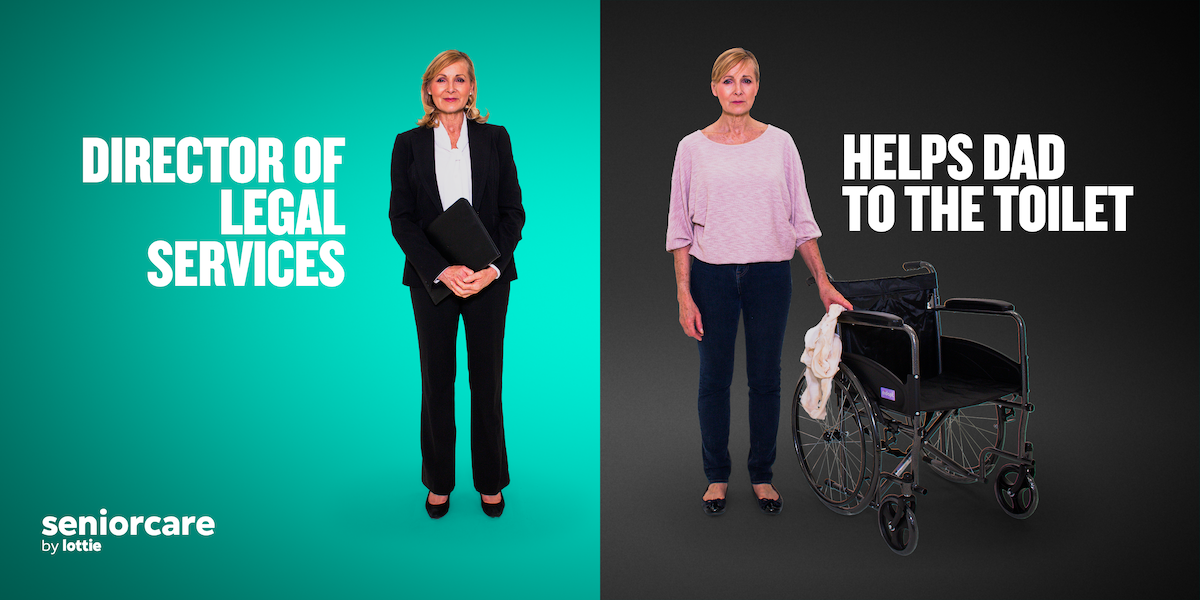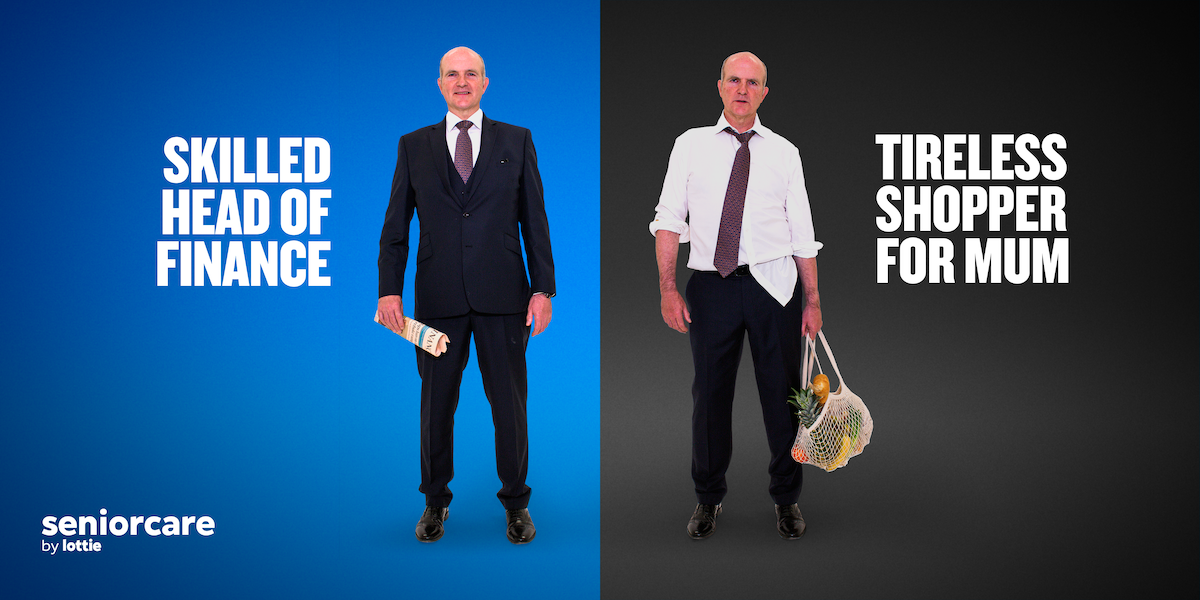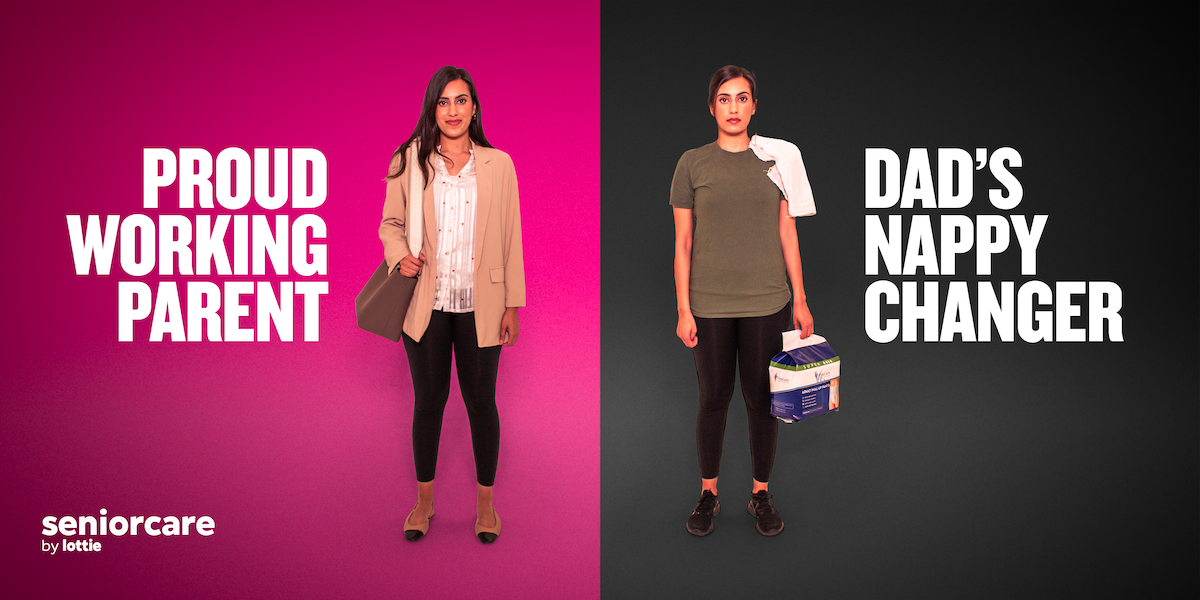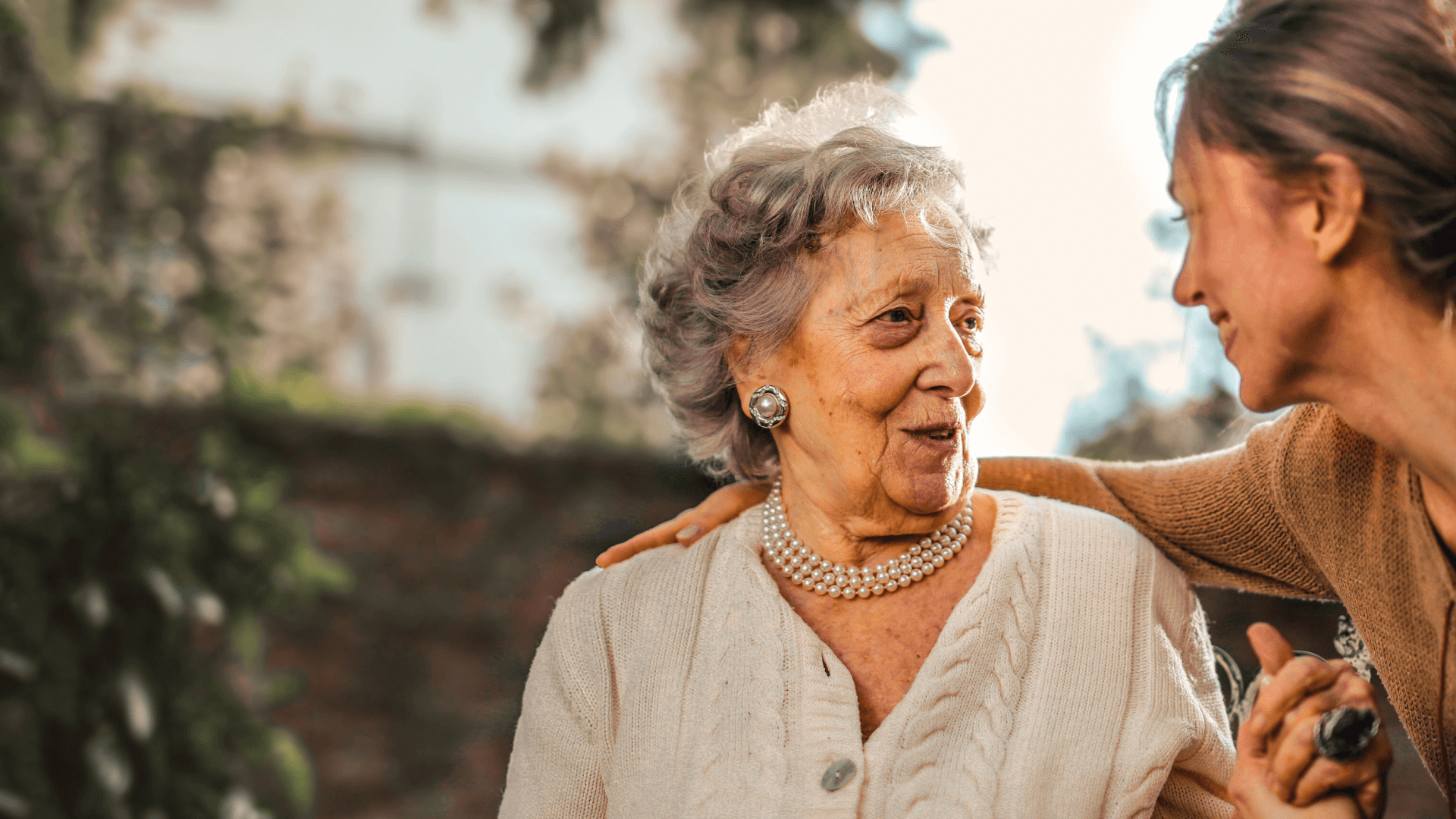This site uses services that use cookies to deliver a better experience and analyse traffic. You can learn more about the services we use in our cookies policy.
Carers Week 2023: The Side of Care People Don't See
Take a look at the adversity employees with caregiving responsibilities face every day


Robin Hill
|
Copywriter
13 June 2023
7.7 million people now juggle unpaid care and work.
There’s a side of care many will not see.
It’s personal. It’s private.
Rarely we open up to show the real side of care, the warts and all for people to see. We don’t want to appear conflicted, incapable or vulnerable, especially in the eyes of our employer. We don’t want to be dubbed a problem, a distraction or charity case. Instead of reaching out for help, we tend to push headlong into the abyss. No matter how great the challenge we face, caring for an elderly person can make us go numb and hide away.
The side of care that struggles, that stumbles and falls, should not be irrelevant. Although it’s hard, hearing these stories of hardship and overcoming adversity is incredibly powerful. It’s not enough to say it exists, we want to show it.
Our campaign, ‘This is the side of care people don’t see’, for Carers Week 2023 was devised to reflect this hidden and tumultuous part of care. Yes, care is rewarding. Taking care of the person that cared for you can be the most important part of your life, however, that doesn’t mean the struggle doesn’t exist. Care is tough love. Whilst our content at Seniorcare by Lottie is usually light-hearted, informative and sentimental, we wanted to shine the light on the stark reality of unpaid care and the hardship that comes with it.
Each persona we created as part of our campaign is based on the real stories we hear from employees every day. There is no magic formula to balance care, work and life, but knowing that others face the same challenges is encouraging. We hope people find solace in this campaign and it helps them speak about their own experiences of caring for an elderly loved one. The statistics below are just a few of the key stories we wanted to highlight:
Women are 400% more likely to give up work due to carer responsibilities
 This is frankly disheartening.
This is frankly disheartening.
Women are often the greatest casualty when balancing care and work. Of course, there are many men who take on caregiving responsibilities, but it’s impossible to ignore the fact that women are far more likely to leave work or have their career stalled at the expense of caring for a loved one. In our culture, it is still normal and expected that women take on the primary caregiving role for elderly family members. And although the paradigm is slowly shifting, we wanted to reflect that fact that women of all ages are undertaking caregiving roles which affect their career and, more importantly, mental health.
50% of unpaid carers feel depressed as a result of caring

This is a tough pill to swallow.
It’s not tough because we desperately need to find a way to reverse the feeling of depression and sadness, but tough due to the fact that this is an inevitable and natural consequence of caring for someone. Caregiving isn’t just exhausting, causing sleepless nights and anxious moments, but it is also sad to see someone you love grow old. This feeling is almost impossible to articulate coherently or understand until you have cared for someone yourself. We wanted to raise awareness on this because feeling this way isn’t a bad thing, but a normal thing.
 “Accepting the fact you are going to have these emotions: anger, guilt, sorrow, despair, exhaustion, won't miraculously make them disappear, but it might stop a bit of a struggle or battle with yourself.”
“Accepting the fact you are going to have these emotions: anger, guilt, sorrow, despair, exhaustion, won't miraculously make them disappear, but it might stop a bit of a struggle or battle with yourself.”
Dr Sarah Bateup, Chief Clinical Officer at Oliva
More than 2.4 million workers care for both children and ageing parents
 And this number climbs higher all the time.
And this number climbs higher all the time.
Caring for children and elderly loved ones simultaneously is called sandwich caring. It’s more common than you think. Add full-time work into this complex equation and you get a triple decker sandwich (or a club sandwich depending on your tastes). You might think the chances of this happening are incredibly low, but due to the cost of living crisis we are seeing more and more people balance care for children, elderly and working all at the same time.
For most, there is simply not enough time or emotional bandwidth to be able to care, whilst also trying to carve out a fruitful career. Research shows that these sandwich carers are more likely to turn down promotions for fears of burnout
Other insights
A collection of engaging articles, guides and insights for leading Benefits Professionals



